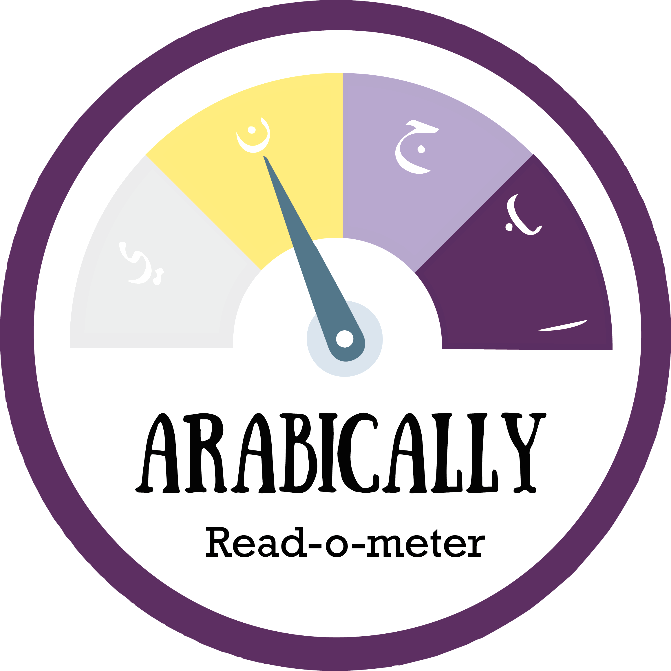
Teach Arabic at Home; Empowering non-Arabic speaking moms
Characteristics and Actions required to teach Arabic to your children
Teaching Arabic to children is a dream for a lot of non-Arabic speaking parents. Most shy away from it because it’s too complex for them. In Arabically, we believe all parents can teach Arabic. To empower you with this idea, we are here to share some characteristics you can harness and some potential actions you can get started with. We have curated these gems from parents who are currently teaching their children Arabic at home, taking small steps, igniting their interest, keeping them connected, and seem to be having a “recipe for success”. This is practical, real-time advice from moms who are breaking cultural norms and doing what they can, where they are.
*Thank you for taking the time and sharing it with us during the Arabically Teach at Home webinar last week.*
Harboring Core Characteristics
Before a parent can start teaching Arabic to a child as a second or third language they must be comfortable not being comfortable. Things such as not knowing what all the words in a storybook mean, not having an answer to most of the questions your child asks, not knowing the verb “to stand” after telling the child “to sit”. Essentially, for a lot of us, it starts from a place of unknowns and that is normal. Eventually, that will change. These characteristics are the base that will make the journey of learning Arabic more endurable and enjoyable for both the parents and the student.
- Priority
The main characteristic a parent must possess is that they have to give priority to the Arabic language. When a parent decides they want to teach Arabic to their kids, it should not be a pass time or a failed effort. Arabic does not come easy when you are trying to develop it as a second language. So you must prepare to make it a priority. Give it the due importance and commitment it requires. Parents have to make this conscious decision. Look at your child’s bookshelf. Does his Arabic beginner book collection excite him? Are you telling them something by giving access to good quality English books and then doubting their interest in Arabic.
- Patience
Arabic can be quite complex. Especially for adults. That is why the parent must have the patience to learn the language and teach it over and over again to the child. You cannot just serve them Arabic and expect them to catch on. For example, investing in a few Arabic apps, and taking a back seat may not show results, much less interest in the language. It is going to be a struggle just to get started. And losing your cool won’t help either. It is only going to drive the child away.
- Flexibility
You are not going to succeed in teaching Arabic with just textbooks. If you plan to do that, then Arabic is going to be just shapes and a nightmare to your child. A parent has to engage in creative play; jump, run, clap, and go that extra mile to help the children with Arabic. You have to find out what works and what doesn’t. A parent has to expand and grow with the child. Enthusiasm is contagious.
- Consistent and punctual
A parent has to put in effort day after day if you want the child to learn Arabic. For the child to learn Arabic, the parent has to turn up first. No matter how busy and exhausted you are. We all know exhaustion goes hand in hand with parenting. You have got to fix a schedule that suits you and the child. And you have to stick to it. It will be easy to put it off because it is hard. But if you let procrastination in, the learning process will become incomplete and confusing. So the parent has to be the role model and show up for the child to follow their lead. That being said, practical goals such as reading Arabic story books thrice a week or spending 3 hours over the week are sizable goals that do not restrict you to a particular day or time slot. You can alternate the reading with online story times or YouTube storybook read aloud channels like Storytime with teta.
- Belief in the child
The most important thing is to believe in your child, to believe that your child can develop good skills in Arabic. Usually, parents make this huge deal about Arabic. Since it’s complex for the parent, they assume it will be more complex for the child. But children are more open to learning and making mistakes. When you start teaching early, they will catch up more easily. And you must have this unshakable belief in your child. Map his/her progress over 6 months as language development takes time.
Parent Action Plan
Once you have your mind prepared for the task of teaching Arabic, you have to follow up with actions. Here are some actions you can take to successfully teach Arabic.
- Dua
Start with dua. Starting the effort in the name of Allah, by asking Him to ease the journey for you and your child.
- Clear vision
Before you jump into teaching Arabic, you have to have a clear vision and set the short term and long term goals accordingly. If you want to teach Arabic so they can understand the Quran, that becomes a long term goal. How are you helping a 5-year old to meet that? Develop short, 3 month goals where you read and learn short passages be it scriptures or poetry, and learn what it means, the stories around it, etc, or set goals to teach words from Quran, and then the grammar, etc. If you just want your child to have Arabic knowledge, you can teach them simple words, play games with them in Arabic, etc.
- Do research
Before you teach, learn about ways to teach. There is lots and lots of material on the internet to help make things easy. Arabically is one such platform that wants to make resources not just accessible but also empowers parents by showing how small vocabulary and few resources can go a long way in modeling motivation. For young children, the key is setting a base for liking the process of learning as opposed to content transfer. So do the research and get things started. Even if you feel your pronunciation is not there yet or your skill needs to be more advanced, learn with the child, research a few words together.
- Combine Arabic with interest
Teaching Arabic can be made a lot easier if you combine Arabic with your child’s interest. For example, if the child is interested in painting, you can teach the Arabic words of the things present in the paintings. If the child is interested in stories, tell them simple Arabic stories. If the child already knows Surahs from the Quran, you can teach them the meanings of the words while they recite it. The key is to ingrain Arabic in things the child knows.
- Feed but don’t force
It is very important to know when to let loose and when to have a hold. If you want your child to learn Arabic, then you must have their attention and interest. Children can’t always give their attention to a new language such as Arabic. They are going to be resistant and distracted at the start. But you have to keep teaching them Arabic is bite size, with varying styles. Maybe some storybooks don’t work well for your child, have you tried using a different publisher? Are you forcing highly advanced books or topics on them instead of light-hearted and funny themes? Sometimes, it is the choice of resources that pushes the child away from learning. If you see that the child is not liking the learning process, you must not force them. Forcing is going to develop negativity towards the language. So it is important to feed but not force.
- Practice
It is very important to just start practicing. Start using small Arabic words in your daily routine. Mothers have the habit of commanding their children. So command the child in Arabic. Ask them to eat, speak, sit, run in Arabic. Use simple and single words. Just start practicing anywhere you can. Set up Arabic activities like stories and rhymes. Let the child prepare and execute. Let them make mistakes. Correct them gently. Teaching Arabic is not a rigid thing.
- Reward and appreciate
When it comes to children, rewards and appreciation go a long way. Children love to be applauded for their efforts. So it’s very important to set a rewarding system for the children. Acknowledge that they are making the extra effort and appreciate them for it. It will encourage them to learn faster.




